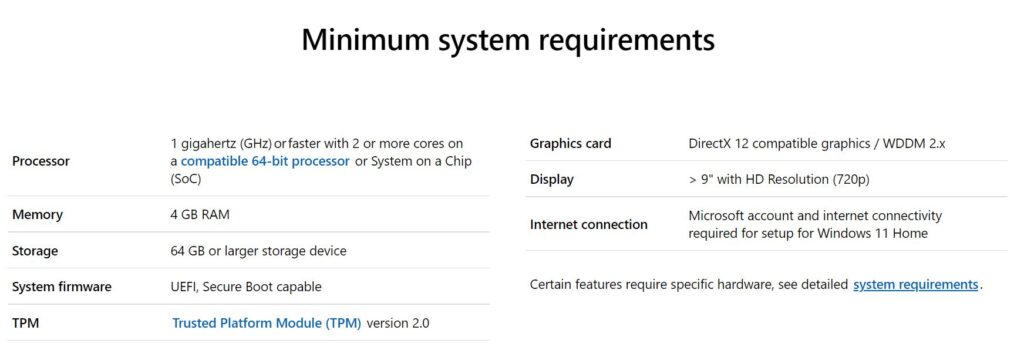

It just informs us that we can continue using Windows 10. Unfortunately, Microsoft’s PC health check app didn’t provide detailed information on the finding. Intel® Core™ X-series, Xeon® W-series & Intel® Core™ 7820HQ (only select devices that shipped with modern drivers based on Declarative, Componentized, Hardware Support Apps (DCH) design principles, including Surface Studio 2) Intel 7th Gen processors that we did not originally include in our minimum system requirements. Windows 11 Home edition requires internet connectivity Internet connection and Microsoft accounts: High definition (720p) display that is greater than 9” diagonally, 8 bits per color channel Trusted Platform Module (TPM) version 2.0Ĭompatible with DirectX 12 or later with WDDM 2.0 driver Processor:ġ gigahertz (GHz) or faster with 2 or more cores on a compatible 64-bit processor or System on a Chip (SoC) But you might want to consider purchasing a new Windows device with Windows 11 pre-installed. You might be able to upgrade the hardware for some of the desktops and laptops. It seems Microsoft will allow enthusiasts to install Windows 11 using ISO.

However, the other hardware requirements like minimum TPM 1.2 and Secure boot will stay. Update: It seems Microsoft will allow unsupported hardware (only for processors and TPM) to upgrade to Windows 11.


 0 kommentar(er)
0 kommentar(er)
